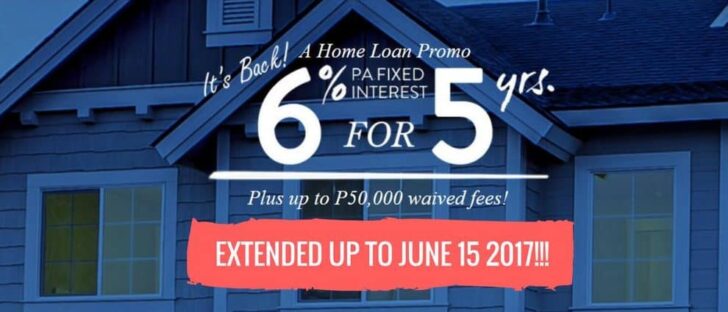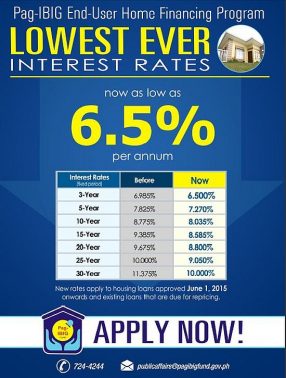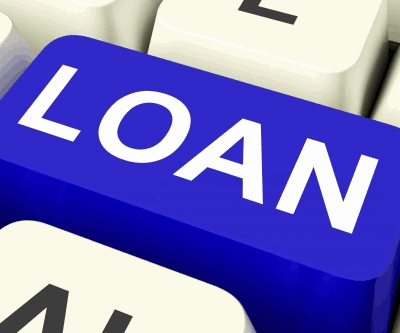 Many people want to invest in real estate, and some even already know what they want to buy, but the real problem is – how can they get financing for the purchase? Majority of the population do not have enough savings to purchase a property in cash.
Many people want to invest in real estate, and some even already know what they want to buy, but the real problem is – how can they get financing for the purchase? Majority of the population do not have enough savings to purchase a property in cash.
So basically, the main hurdles are how one can buy through a smaller downpayment (DP) with the remaining balance payable for several years, at affordable monthly payments. Let’s analyze how these can be done so you can finally take that first step in real estate investing.
Downpayment
For the DP, developers of pre-selling projects have provided several easy downpayment schemes like 10% over 36 months or even 5% over many months. This is a win-win situation for both buyers and sellers, as the buyers are able to pay little by little while the construction is ongoing, and the sellers need not pay interest to banks when they use the buyers’ money for construction costs and others. The downside to pre-selling projects, though, is that you can’t use the property until it is turned over to you. So technically, your money is sleeping during the construction period.
In the case of bank-foreclosed properties, since the properties are ready for occupancy (although some need major repairs), once the buyer pays the DP, he can already take control of the property – either use it, rent it out, or sell it. The percentage of DP, though, depends on each bank. To cite a few examples, BDO needs a DP of 30%, RCBC Savings Bank needs 25% DP to occupy properties with improvement and 10% for vacant lots, and Unionbank needs 10% DP (keep in mind these figures are for acquired assets/foreclosed properties).
Normally, the DP or the equity portion of the purchase is the amount that is not included in the loanable amount from the bank. For example, a property with a selling price of P2M needs a DP of 10%. The buyer is able to give the 10% DP which amounts to P200k. That leaves P1.8M to be loaned. However, based on his capacity to pay, appraised value of the property, and other factors, his approved loan only amounts to P1.2M. Thus, the buyer needs to produce another P600k in addition to the P200k he already paid, for a total of P800k, as his equity in the property. The P1.2M will be paid over a certain number of years at a certain interest rate via monthly amortizations.
The most buyer-friendly DP scheme which I have seen from a bank is that of Unionbank, which requires only 10% DP, spread over six (6) months. Once the 10% DP is completed, the buyer can move in the property. Further, as far as I know, Unionbank is the only bank that does not do credit checking for residential properties.
If you need a loan for the DP, you may avail of bridge financing (usually from private lenders and subject to a high interest rate), or you should seriously reconsider and think long and hard on whether or not you are ready to buy a property at this point.
Balance to be loaned
For the balance, these can be loaned from banks. The downside to paying a low DP, is having a bigger balance to be loaned, which in turn translates to more interest expense. For example, if the DP you paid is only 5% or 10%, you need to loan 95% or 90% respectively. If loaned at an interest rate of 10% for 20 years, for example, the total interest expense can be very significant, and may even be equivalent to, or even more than the principal loan amount.
With a higher DP, the balance to be loaned will be lower, and thus the amortization payments would also be lower, and thus, it is more likely that the buyer would be able to pay monthly, until the amount is fully paid. As a lender, the bank’s main business is to earn interest income from loans. It is in its best interest to lend an amount that borrowers would be able to pay.
This is why one of the main factors being considered by lenders is the borrower’s capacity to pay, which is based on a percentage of his net disposable income. Usually, the monthly amortization should be at a maximum of around 35% to 40% of the borrower’s net take-home pay. Of course, this is because they took into consideration the other bills that people need to pay such as food, clothing, water, electricity, etc. The lenders are in effect protecting the borrower from biting more than he can chew.
Should the buyer be unable to pay the amortizations in the future due to unforeseen circumstances, it is probable that either the buyer or the bank can sell the property for the principal loan amount (which is much lower than the property’s original selling price). This is why usually the loan to appraised value ratio is not 100%.
Let’s say a property you like is being sold for P2M. Based on the bank’s appraisal, it is only worth P1.8M, and it is willing to lend you only 70% of the appraised value, or P1,260,000.00. Assuming you, as the buyer, have the capacity to pay the P1.26M loan, you still need to produce P740,000.00 or 37% of the selling price. Assuming you are unable to pay the loan, it is probable that you can sell the property for P1.26M if it’s really worth P1.8M (based on the appraised value). Or, if the bank forecloses the property, it is probable that it can sell it for P1.26M plus foreclosure and other holding expenses, so that it can get back its money, which it can then lend again to others with interest, in accordance with its main business model.
Before buying a property, check the computations first, including all payments up to the very end of the period when the property is fully paid, and analyze if you can afford it.
Note too that this discussion is on residential real estate purchases. Financing a commercial real estate investment deserves a separate article.
Interest rate
For the interest rate on the loan, we can see a lot of advertisements saying that the interest rate is only 5.75% or so during the first year. This can give some people false confidence that the interest rate will remain low throughout the 20-year payment period (for example). Read the fine print to check how much the interest rate for the succeeding years will be.
- Related article: Low Home Loan rates – What you need to know before it’s too late
Adjustable rates are ok for now, since the Philippine economy is doing well and the interest rates are low. Negotiate for a cap on the interest rate so that should it rise in the future, you are protected. I included a provision on an interest rate cap in a proposed loan agreement I was reviewing and a bank agreed to it, so I can say that this can be done in the Philippines. This looks like the best of both worlds – adjustable rates to take advantage of low interest rates and a cap to limit exposure.
I read somewhere (I just can’t recall right now) that the adjustable rate mortgages (ARMs) are one of the causes of the real estate bubble in the US, because there were some people who were over-leveraged (basically borrowed more than they could afford to pay) and probably based their computations as if the low interest rates were already fixed. With this in mind, I believe that people should get loans only for an amount which they are able to pay comfortably, regardless of whether a bank or a private lender is willing to lend them much more. [Getting financing from private lenders also deserves a separate article.]
As I always say, at the end of the day, investing always has risks. And in finance, it’s good to remember: high risk = high return, low risk = low return. How you manage your risk is your personal lookout. Enough cash reserves could cushion the negative impact of an unforeseen circumstance, as well as good personal money management.
For those who are thinking about how to apply for a loan to finance their first deal, you can read Jay’s article below:
Got questions about financing your real estate investments? Ask them now through the comment section below. Thanks!
~~~
Cherry Vi M. Saldua-Castillo
Real Estate Broker, Lawyer, and CPA
PRC Real Estate Broker License No. 3187
PRC CPA License No. 0102054
Roll of Attorneys No. 55239
Text by Jay Castillo and Cherry Castillo. Copyright © 2008 – 2013 All rights reserved.
Full disclosure: Nothing to disclose.
Image courtesy: of phanlop88 / FreeDigitalPhotos









i need a small loan to finance capital gains tax, doc stamps and transfer fees. i have already bank approval and can be paid off once is released to me
Hi Sir Jay/Mam Cherry,
I’m new in this blog and I’m glad that I found it. I’m interested in foreclosed property investing since I read Think Rich, Pinoy of Larry Gamboa almost half a year ago. I did some inquiry on banks and found out that I did not reach their minimum monthly income requirement to approve the loan. Is it still possible for me to engage on this investing? Thanks and more power!
Hi good day atty. Ask ko lang po kasi I want to invest a Condominium Unit. The broker told me na ang payment scheme ko lang po is 15K reservation fee, 20% downpayment for as low as 7K/monthly, then yung balance is pay thru bank financing since I don’t have Pagibig yet. 8% po ang bank loan interest. Makakayanan po kaya na 8K ang payment monthly good for 15years to pay. I am afraid po kasi na pag hindi nabayaran is mawawala ang unit sa amin.Thank you
Good Day. I ‘d really appreciate if you could advise me with regards to
my situation. I have asked a geodetic engineer to subdivide my lot in
my hopes of building an apartment complex which I planned to rent out.
However, this plan did not push through due to lack of funds. Now, I am
planning just to sell the 9 lots as is, as lots only. My question is,
do I still have to apply for a license to sell from HLURB for
these few lots I plan to sell? My brother, with his 8 lots from a titled
property in his name that is adjacent to mine, also has the same
question. Thank you in advance.
J. Geronimo
Bacoor, Cavite
Pingback: Our Top 10 Real Estate Investing Blog Posts For 2013
Thank you very much for this very helpful article.
This is my first time to check your website and I am astonished by this information. I was referred by my colleague to check your articles as I am very keen to invest my savings to something worthy. I am 25 years old working in a company here in UAE and I want to invest & earn something from my hardworking pennies.
Would highly appreciate if you can advise me further! If I’m earning 100k PHP a month, what/where is the best way to invest this money? Should I loan for a lot then build a commercial building on it or should i loan for a house and lot then have it rent?
HI,
I love this blog!
I am really interested in investing in real state, however I don’t have enough money for financing.
Tama po ba ang pagkaintindi ko sa mga foreclosed properties after paying the downpayment I can sell the property na?
I am reall intested in real state investment unfortunately I have zero knowledge and no enough funds.
I hope you can give me some advice.Thank you
-Joy
Hi, Cherry & Jay!
I have a few questions and hope you can enlighten me on this investment…
Most of the examples of foreclosed property deals I see here and on the net are properties with existing buildings or apartment units that with some improvements can already be rented out for a positive cash flow.
I would like to know how to make a cash flow wherein the foreclosed property is just a LOT WITH NO IMPROVEMENTS… that means I have to construct a new building, probably an apartment or an inn that would really cost so much.
I was able to pay for the down payment of the lot and remaining balance through bank financing at 12% interest for 10 years. I’m looking at another financial institution that could lend me some money for the construction of the building, though with a lower interest rate, the term is only for 3 years.
How do I compute for the cash flow when the interest rate and the term of the loans for the lot and the construction of the building are different? With a 3 year term for the loan of the construction of the building, the monthly amortization is going to be big, so I think it would result to a negative cash flow… how do I make sense out this?
Thanks so much… I learn a lot from you.
Evelyn
Your blog is very informative.
I hope you can help me with one question:
A few years ago, I defaulted on a car loan; I had to return the car to the bank. Since then, I could no longer take out a new car loan and I was told that I already have a record in a national database that all banks use to check borrowers.
My question is, now that we’;re thinking of getting a residence and of course the banks are the first choice to finance it — does my record with the car loan affect my chance of getting this housing loan?
Thanks!
Hi Caloy,
Thanks for the compliment, we really appreciate it!
With regard to your question, at first glance it appears that since you already have a record, it can be taken against you. But recently I heard a very good point from Atty. Mel Santa Maria of Channel 5 where you can also look at it like this: a borrower defaults, and returns or surrenders a property (a car in your case), and you complied with your agreement with the bank, and in a way, that should mean you are a man of your word “tumupad ka naman sa usapan…”. I suppose you can use this line of reasoning with the bank when you apply for a housing loan. I hope this helps.
Cheers!
Thanks for the reply. A very good point, indeed.
Hello Maam /Sir,
Ask ko lang po sa inyo kasi may kinuha po kaming house & lot ,nakabayad na po kami
lahat ng DP, & reservation pay natapos po namin un pagbayad sa loob ng 12 months ,after that nagbayad na po kami ng Amortization Monthly Payments ,nagsimula po kami 2009 at 1yr binayaran namin ang DP ,tpos noong 2010 hanggang january 5,2013 ang last naming pagbabayad ngyung buwan lng po sa kadahilanan dina po kami makakabayad ng buwan2 ,kya naisip na po namin na e stop na ,nagkaroon ng Cancellation sa unit na kinuha namin sa Kompanya. Ang contrata po ay hanggang 5 years ,at nakahulog na po kami lahat2 ay 1 million na mahigit sa Developer kasama sa DP. ang problema po namin ay di kami magka sundo ng kompanya dahil ung refund na ibabalik sa amin ay wla po doon nka base sa Maceda Law ,kasi ang computation nila ay doon po kinuha sa Principal,diba po nkasaad sa batas natin sa pilipinas patungkol d2 na ,dapat doon mag base ang Kompanya sa Monthly Installment Payments ng Buyers kasama ang interest kso po dipo un ang sinusunod nila kasi may sarili clang batas na sinusunod .Sabi po sa amin na kung mababsa dw namin doon sa ibinigay sa amin na Contract to-Sell nakasaad dw doon ayon sa batas ng kompanya..Ang tanong ko po ,dipo ba covered dto ang Maceda Law sa sinasabi ng Developer? cno po ba ang dapat masusunod ang batas nila o batas ng Gobyerno? Kaya po sa ngyun nakausap ko ung Kompanya kasi naano na dw nila ang cheque ,inantay nlang ang perma nmin ,pero ung computation nila sa refund sa amin dipo kami pumayag na ganun lang ang naibalik sa amin ,kc wla pa po sa kalahati ung ibinalik nila sa amin na refund.Samantalang malaki na po ang naihulog namin ,kaya hanggang ngyun dipa kami nagkasundo ng Developer,kasi sabi ko ipaglaban po namin kasi pera po namin yan na painagpaguran ,parang pinaikot-ikot lng kami ng Kompanya.Kaya tanong ko po ano ba ang dapat naming gawin para makuha namin ang tamang refund na ibabalik sa amin.
Sana po matugunan nyo ang aking mga katanungan kung ano po ang dapat naming gawin,kasi po hinhingi namin ung buong computations lahat na binayaran namin hanggang january 5,2013 ..hanggang ngyun dipa po nila e ni mail sa amin ,may bingay lng cla na computation sa amin ung Refund na binase lng nila doon sa Principal ,kya po di kami pumyag sa ganung ginawa nila .
Ano po ba ang maitulong nyo sa amin ..sana po matutulungan nyo po kami .
Slamat & God bless po !
Elisa Martinez
hello. been lurking here since 2009 pa ata or 2010.
nice work here, malaking tulong to. thank you.
regarding bank requirements, OFW din ako. plan ko rin sana kumuha ng bahay through bank loan. meron ako employment certificate with compensation kasama yung employment contract ko, will these be enough? napa-notarize ko na sa embassy dito.
hello po, gusto ko po sanang bumili ng bahay at lupa or kahit lupa lang na somewhere lang sana sa bayan ng binmaley pangasinan, problema ko po is may pang downpayment ako but wala akong pambayad ng the whole amount ng bahay at lupa..ano ba dapat kung gawin?? can you help me what to do? i am working abroad if uutang ako sa bank do you think they will lend me the money? pls po i need advise .. hope matulungan nyo po ako.. thanks and GOD bless po..
Dear Ms. Arlene,
Banks also lend to OFW’s po, they have certain loan products for that sector. May mga kailangan lang pong isubmit like passport, work contract, work permit, proof of income, depende po sa bank e. Magbabakasyon po ba kayo sa Pilipinas anytime soon? Ano po ang bank nyo dito? Ang requirements po kasi ay depende sa bank.
Best regards,
Cherry
Cherry
You forgot to mention the biggest risk when buying ‘off the plan/pre selling projects’ the risk of the developer going broke and not completing the project, i imagine that buyers would be at or close to the bottom of the list of creditors.
Thanks for bringing this up Darren. Developers are not allowed to sell without a License to Sell issued by the HLURB. I did a little googling and found an article which says that the rules on pre-selling will be tightened: http://www.mb.com.ph/articles/364371/housing-body-tightens-preselling-regulations#.UPyPgVJ4PfU. Here’s another good article on this subject: http://business.inquirer.net/82132/what-to-ask-your-agent-before-buying-property.
Definitely, buyers should check the reputation of the developer before buying pre-selling projects. Usually, what the developers do when they launch is they get a Letter of Intent (LOI) showing intent to buy, together with a reservation check which should be dated on the day they expect to get their License to Sell (LTS) from the HLURB. They will only encash the check once the LTS is released. I believe the developers have their own lawyers and I think they have studied if this method satisfies the requirements of the HLURB already. Based on the news article though (I have yet to double check the source), even an attempt to sell is likewise not allowed, and I am not sure if the current practice is already a violation. Good thing SM Green and SM Blue (I have website for these two) already have their LTS.
Best regards,
Cherry
Good day! Thank you for the information it will help a lot for people. Knowing all about the information about investing is a big help to all.
Hi Sir Jay/Ms. Cherry,
First of all, thanks for all the reference materials here in your blog. They have been all great and helpful.
I have seen my dream subdivision property currently listed in one of our banks. Unfortunately, I don’t have the required downpayment at hand. It will still take 3-4 months before I can raise the required downpayment. What could be my options? Will the bank accept scheduled payment? I was initially advised by the bank that if there are other interested buyers, they’ll have a sealed bidding. Please advise.
Thanks,
Teddy
Dear Jay/Cherry,
I’ve been subscribed to Jay blog for some time now trying to learn things in between the lines and I would say that reading your articles helped me in my quest to find more financial skills. But all those times all I was able to do was read, read, and read again.
And now I am on an edge.
I retired from being employed a month ago and right now planning to buy my first real estate property to generate income/profit. I want to maximize advantage and I’m having trouble with choosing the type of property and location as well as how to pay. I have cash to pay DP but if I could acquire it without money out it would be best for me. I plan to finance with little or no money out from my own pocket if this is ever possible. If ever by loan, I’m worried that banks will not approve me a loan since I have no current monthly income. Also, I’m thinking if I could actually buy a property under a business name which is not existing right now. I read the taxes are less if done that way.
If you could give some advice on how to do things on the best ways the first time I’d be much humbled.
My thoughts and likes are contradicting each other that I look for help around me. I hope you can.
I apologize if I’m asking too much but your help will be much appreciated.
Best Regards,
Jeni
Hi Jay/Cherry,
I am planning to buy my first real estate property to generate income/profit since I retired from being employed a month ago. Can you give some advice regarding a good property location/type for this kind of plan. Also, I plan to finance with little or no money out from my own pocket if this is ever possible. I’m worried that banks will not approved me a loan since I have no current monthly income. Any thoughts would be appreciated.
Best Regards,
Jeni
Hi Jeni,
Unionbank has no credit checking and the downpayment is only 10%, payable over 6 months. You may want to look into their properties.
Re: no money out, there is of course risk here (as usual). This short explanation is based on my simple understanding of this scheme only. If a seller would be willing to tie down the property to you for a minimal amount/option money (let’s say P20,000 for one month, he/she will not sell the property to another, and you peg the selling price at let’s say P2M), you can turn around and look for another person who would be willing to pay a higher amount for the said property (let’s say P2.5M). Then you assign your rights for P500k, and the seller and your buyer close the deal for P2.5M.
Now, this seems to me like a violation of the RESA law since you are not the owner of the property you are selling (unless you are a licensed real estate broker as well). Here are the exemptions to the law for your reference:
“SEC. 28. Exemptions from the Acts Constituting the Practice of Real Estate Service. – The provisions of this Act and its rules and regulations shall not apply to the following:
(a) Any person, natural or juridical, who shall directly perform by himself/herself the acts mentioned in Section 3 hereof with reference to his/her or its own property, except real estate developers;
(b) Any receiver, trustee or assignee in bankruptcy or insolvency proceedings;
(c) Any person acting pursuant to the order of any court of justice;
(d) Any person who is a duly constituted attorney-in-fact for purposes of sale, mortgage, lease or exchange, or other similar contracts of real estate, without requiring any form of compensation or remuneration; and
(e) Public officers in the performance of their official duties and functions, except government assessors and appraisers.”
For me, it would be better to just be a licensed real estate salesperson or refer a client to a real estate broker who can then give you a fee for your efforts, coming from the commission/professional fee.
Some may argue that from the time you “tie down” the property by paying option money, you are already acting as owner of the property and not as mere seller. In my personal opinion, at this point you are not yet technically the owner under the provisions on Ownership in the Civil Code. I am not aware, though, if this has been tested in the courts already. For me, however, it’s better to err on the side of caution.
Best regards,
Cherry
Thank you for the reply. I appreciate very much!
Actually, I got the idea from reading books wherein they buy foreclosed properties, fix it, and offer to the public in rent-to-own basis. I thought I could rely on their confidence in doing that and they seem to be professional people to me. I may need to sharpen my judgment. Your article will help me to be more cautious.
Hi Jeni,
Rent-to-own is different from the no money down model I described earlier. Rent-to-own is actually a misnomer, para sa akin it’s just Contract To Sell. I am writing down my theories on this, pero di pa ako tapos. Kahit kami nakikinig lang din dati sa sabi ng iba regarding rent-to-own e. Ang tagal kong pinag-isipan yan sa totoo lang, its tax implications and legal documentation. You will not find the term rent to own in any law except Maceda Law and even there, it was not clearly defined.
Best regards,
Cherry
Hi Sir Jay and Atty. Cherry,
Greetings!
Happy to hear that Ma’am Cherry is already a lawyer…
COngratz po.
Hi Ms. Helen! Nice to see you here again. By the way, Cherry has been a lawyer since 2008. 🙂